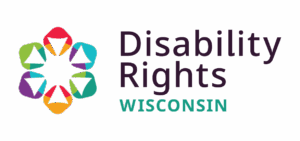In the past, it was not uncommon for adults and children with disabilities to be placed in large, impersonal institutions, isolating these individuals from their families and communities in environments that often put them at risk for abuse and neglect. We now know that integrating people with disabilities into communities not only helps these individuals reach their full potential and attain a better quality of life, but it also helps our communities become more diverse, inclusive, and welcoming.
Your Rights
Americans with Disabilities Act: The ADA, passed in 1990, is a comprehensive federal civil rights law that prohibits discrimination on the basis of disability. The ADA defines a disability as: A physical or mental impairment that substantially limits one or more major life activities (i.e. working, talking, hearing, seeing, caring for one’s self) Or having a record of such an impairment; Or being regarded by others as having an impairment such as individuals with severe facial scarring. There are five Titles within the ADA that cover:
- Title I: Employment
- Title II: State & Local Governments
- Title III: Places of Public Accommodations
- Title IV: Telecommunications
- Title V: Miscellaneous Provisions
Strategies
Disability Rights Wisconsin supports a person’s right to live in the most inclusive, most integrated, and least restrictive environment with appropriate services. We challenge inappropriate institutionalization, inadequate discharge planning, and limited access to community placements for people with disabilities, including those under guardianship. We provide information, referral, advice, investigation, and in select cases, legal representation to assist people with disabilities in securing the most integrated residential setting and appropriate supports.
